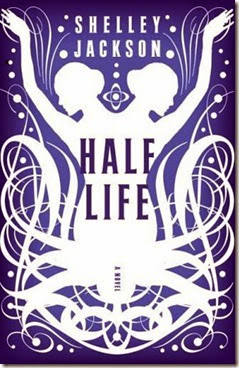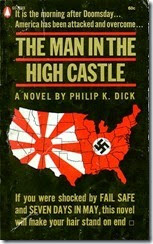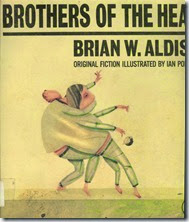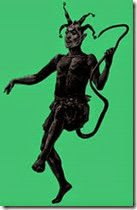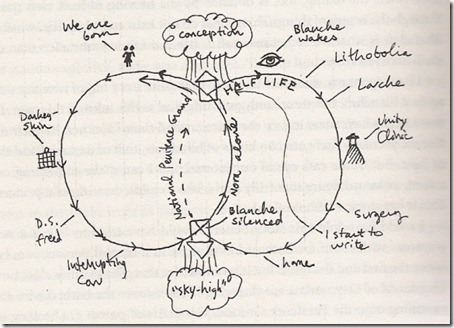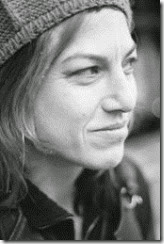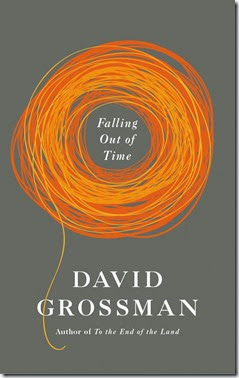
[T]here is no there, of course there isn’t, but what if you go there? – David Grossman, Falling Out of Time
The blurb describes this book as follows: “Part prose, part play, and pure poetry, David Grossman’s Falling Out of Time is a powerful exploration of mortality, mourning, and the long good-bye that follows the death of a loved one.” It’s an apt description but this description also pinpoints the book’s weakness: it’s neither fish nor fowl nor, as I suppose we need a third creature to pad out our comparison, beast. For my purposes I treated it as a novel in dialogue since I’ve been searching these out of late. I’ve also found myself reading quite a bit about loss recently—not exactly planned but these books keep falling into my hands—and so this was one more to compare with the others. And a very different exploration of loss and grief it was too.
Larkin has said his aim in writing a poem is “to construct a verbal device that would preserve an experience indefinitely by reproducing it in whoever read the poem.” I believe this goal can be achieved by carefully written prose too and a good example is the book I’ve just finished reading—Us by Michael Kimball—a book the author spent a great deal of time perfecting. Grossman also didn’t rush the writing of this slim volume—the dates at the end state it took him from April 2009 to May 2011 to complete the work and it’s much shorter than Kimball’s—but it takes a markedly different approach to the problem of reproducing the process of grieving.
That this work might get compared to Beckett—Edward Hirsch in his review for the New York Times described the book as “a medieval allegory or a Beckett play”—but the works it actually reminded me of were not plays but rather the novellas Stirrings Still and Ill Seen Ill Said particularly the latter from which this is an extract:
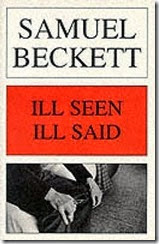 The cabin. Its situation. Careful. On. At the inexistent centre of a formless place. Rather more circular than otherwise finally. Flat to be sure. To cross it in a straight line takes her from five to ten minutes. Depending on her speed and radius taken. Here she who loves to – here she who now can only stray never strays. Stones increasingly abound. Ever scanter even the rankest weed. Meagre pastures hem it round on which it slowly gains. With none to gainsay. To have gainsaid. As if doomed to spread. How come a cabin in such a place? How came? Careful. Before replying that in the far past at the time of its building there was clover growing to its very walls. Implying furthermore that it the culprit. And from it as from an evil core that the what is the wrong word the evil spread. And none to urge – none to have urged its demolition. As if doomed to endure. Question answered. Chalkstones of striking effect in the light of the moon. Let it be in opposition when the skies are clear. Quick then still under the spell of Venus quick to the other window to see the other marvel rise. How whiter and whiter as it climbs it whitens more and more the stones. Rigid with face and hands against the pane she stands and marvels long.
The cabin. Its situation. Careful. On. At the inexistent centre of a formless place. Rather more circular than otherwise finally. Flat to be sure. To cross it in a straight line takes her from five to ten minutes. Depending on her speed and radius taken. Here she who loves to – here she who now can only stray never strays. Stones increasingly abound. Ever scanter even the rankest weed. Meagre pastures hem it round on which it slowly gains. With none to gainsay. To have gainsaid. As if doomed to spread. How come a cabin in such a place? How came? Careful. Before replying that in the far past at the time of its building there was clover growing to its very walls. Implying furthermore that it the culprit. And from it as from an evil core that the what is the wrong word the evil spread. And none to urge – none to have urged its demolition. As if doomed to endure. Question answered. Chalkstones of striking effect in the light of the moon. Let it be in opposition when the skies are clear. Quick then still under the spell of Venus quick to the other window to see the other marvel rise. How whiter and whiter as it climbs it whitens more and more the stones. Rigid with face and hands against the pane she stands and marvels long.
The two zones form a roughly circular whole. As though outlined by a trembling hand. Diameter. Careful. Say one furlong. On an average. Beyond the unknown.
As with many of Beckett’s texts we’re given only as little information as is necessary—think of setting to Waiting for Godot: A Country Road. A Tree. Evening.—and it’s the same with Grossman. This is how Falling Out of Time begins:
TOWN CHRONICLER: As they sit eating dinner, the man’s face suddenly turns. He thrusts his plate away. Knives and forks clang. He stands up and seems not to know where he is. The woman recoils in her chair. His gaze hovers around her without taking hold, and she—wounded already by disaster—senses immediately: it’s here again, touching me, its cold fingers on my lips. But what happened? she whispers with her eyes. Bewildered, the man looks at her and speaks:
So reminiscent of Stirrings Still:
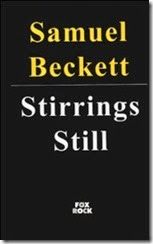 One night or day then as he sat at his table head on hands he saw himself rise and go. First rise and stand clinging to the table. Then sit again. Then rise again and stand clinging to the table again. Then go.
One night or day then as he sat at his table head on hands he saw himself rise and go. First rise and stand clinging to the table. Then sit again. Then rise again and stand clinging to the table again. Then go.
We’ve no idea what place this is, not even the country (the town’s troops are called hussars but that’s little help), what type of dwelling, how old the couple are (assuming they are a couple) or where in history this is taking place. Or even where the Town Chronicler is. Is he in the room with the couple or is he somewhere else relating or making up this tale? Since the town has a train station it can’t be set in medieval times, that’s for sure, but that aside the setting is timeless and placeless and, most importantly, in a political vacuum. What we do know is this has happened before, this ‘it’ that’s here again. A stage setting is not hard to imagine. An empty room, empty bar, a table and two chairs. Very Beckettian. The man begins talking:
—I have to go.
—Where?
—To him.
—Where?
—To him, there.
—To the place where it happened?
—No, no. There.
—What do you mean, there?
—I don’t know.
—You’re scaring me.
—Just to see him once more.
—But what could you see now? What is left to see?
—I might be able to see him there. Maybe even talk to him?
—Talk?!
TOWN CHRONICLER: Now they both unfold, awaken. The man speaks again.
—Your voice.
—It’s back. Yours too.
—How I missed your voice.
—I thought we … that we’d never …
—I missed your voice more than I missed my own.
—But what is there? There’s no such place. There doesn’t exist!
—If you go there, it does.
—But you don’t come back. No one ever has.
—Because only the dead have gone.
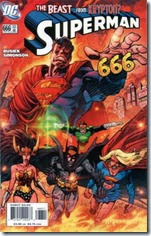 There is like tomorrow. There is an idea. We, the living, are trapped in the here and now. Only in myths do people go there (Orpheus) or poems (Dante) or comics (Superman briefly became lord of Hell in Superman #666). We don’t even know where there is. Or, as the woman says, what there is. But if someone isn’t here they must be there otherwise they’d be nowhere and that’s even harder to imagine:
There is like tomorrow. There is an idea. We, the living, are trapped in the here and now. Only in myths do people go there (Orpheus) or poems (Dante) or comics (Superman briefly became lord of Hell in Superman #666). We don’t even know where there is. Or, as the woman says, what there is. But if someone isn’t here they must be there otherwise they’d be nowhere and that’s even harder to imagine:
we are here
and he—
but it’s impossible!
Impossible.
We learn, as the two talk, it’s been five years since they lost their son, Uwi. They have now, as the wife puts it, “come back to life”, got on with their lives, but clearly grief is not done with them. The future is a place we can only imagine visiting but the past is easily accessible, too easy. “Don’t go back there,” the woman begs him. But it, whatever this ‘it’ is, has a hold of him:
MAN:
For five years
we unspoke
that night.
You fell mute,
then I.
For you the quiet
was good,
and I felt it clutch
at my throat. One after
the other, the words
died, and we were
like a house
where the lights
go slowly out
[…]
And together
we were born
on the other side,
without words,
without colours,
and we learned to live
the inverse
of life.
(silence)
Eventually the man can stand it no longer. He paces round and round the table. He has to go and begs his wife to come too but she won’t:
I would go
to the end
of the world with you,
you know. But you are not
going to him, you are going
somewhere else, and there
I will not go, I cannot.
I will not.
It is easier to go
than to stay.
I have bitten my flesh
for five years
so as not to go, not
there,
there is
no there!
But the man insists:
There will be,
if we go
there.
and he ends up leaving the cabin alone.
Again I’m reminded of Beckett. From Worstward Ho:
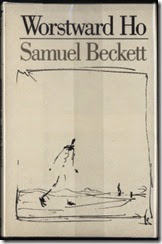 A place. Where none. A time when try see. Try say. How small. How vast. How if not boundless bounded. Whence the dim. Not now. Know better now. Unknow better now. Know only no out of. No knowing how know only no out of. Into only. Hence another. Another place where none. Whither once whence no return. No. No place but the one. None but the one where none. Whence never once in. Somehow in. Beyondless. Thenceless there. Thitherless there. Thenceless thitherless there.
A place. Where none. A time when try see. Try say. How small. How vast. How if not boundless bounded. Whence the dim. Not now. Know better now. Unknow better now. Know only no out of. No knowing how know only no out of. Into only. Hence another. Another place where none. Whither once whence no return. No. No place but the one. None but the one where none. Whence never once in. Somehow in. Beyondless. Thenceless there. Thitherless there. Thenceless thitherless there.
At first he trudges round the house and then widens his circle until eventually he ends up walking around the entire town. Again from Stirrings Still:
Seen always from behind whithersoever he went. Same hat and coat as of old when he walked the roads. The back roads. Now as one in a strange place seeking the way out. In the dark. In a strange place blindly in the dark of night or day seeking the way out. A way out. To the roads. The back roads.
In this respect he is similar to the woman in Ill Seen Ill Said who is “drawn to a certain spot. At times.” The man too is being drawn to a certain spot, a wall at it turns out, a stone wall (stones are important metaphors in Beckett’s writing), but first he has to journey there. But, of course, it’s not a linear journey—he doesn’t go straight there (does he even know where there is?)—but, like May in Footfalls (whose ‘journey’ is also circular (or at least elliptical)), he still needs to feel as if he’s going somewhere. As Beckett’s Molloy puts it:
When a man in a forest thinks he is going forward in a straight line, in reality he is going in a circle, I did my best to go in a circle, hoping to go in a straight line.
At this point in the text he stops being Man and becomes Walking Man. Later on we encounter a woman walking round and around a belfry and she is very much like May:
What do they see? A woman
from the village, from by the swamps,
with a village face and heavyset legs,
a long silver braid, barely moving, walking
slowly,
slowly,
three or four steps
an hour, a madwoman.
They can laugh.
Laugh all they want. I walk
around the spire slowly, one step,
another, and another step.
The Town Chronicler, who had been watching events unfold through the cabin’s window, follows The Walking Man for a bit before being distracted by others. What has happened in his house is, apparently, not an isolated instance. The man is only the first of many beginning with The Cobbler who, as the text progresses, all join The Walking Man in his perambulations. In his notebook the Town Chronicler writes:
At times it seems, Your Highness, that a nameless power hovers over the town, envelops it, and—like a person sucking an egg through a hole in the shell—it draws these people and others toward it, from kitchens and squares and wharves and beds. (And—if there is truth to the shocking, dizzying rumours, Your Highness—even from palace rooms?)
It’s at this point we realise that when the Town Chronicler’s talking he’s not addressing us. Actually he’s writing to someone he calls “my lord” and “Your Highness” who turns out to be The Duke but we don’t learn anything more about him at this point and the action shifts to “midnight, at the old wharf by the lake” where we encounter the mute Net-mender. (Not quite sure why she’s described as mute because she’s given lines to say a few pages on. Maybe they’re thoughts. No, later on the Town Chronicler says, “Now she notices me and falls silent.” Then again the first man and woman talk about being mute so maybe they all have been and now, suddenly, their tongues have been untied.) Days pass. On his third night’s watch the Town Chronicler comes across The Centaur, not a literal centaur, but a writer we discover sitting at a table:
A dirty blanket is spread out on the desk before him. A few empty beer bottles, pens, pencils, a school notebook, all scattered around. The notebook is open; its pages have thin blue lines. As best I can tell from here, they are all empty.
“Scram before I wring your balls,” the centaur growls without opening his eyes, and I flee for my life.
We learn that the Town Chronicler has a wife and like the others they too have lost a child (thirteen years before, a daughter) as has the Net-Mender (a six-year-old), the Centaur (an eleven-year-old boy, Adam, fifteen years earlier), the Cobbler and his stuttering wife (a daughter, Lilli), the Elderly Maths Teacher (his son, Michael, twenty-six years for him: a prank gone awry, / a bathtub, a razor, / veins slashed / in the course of a game) and the Woman atop the Belfry (a son, a soldier I think). And the Duke himself it transpires (a son one August and now every day is August).
As the text progresses we find out a few things about the Town Chronicler and his relationship with the Duke:
It was he who commanded me, in a royal edict, to exile myself from my home, to walk the streets day and night recording the townspeople’s stories of their children. And it was he who forbade me—by explicit order!—to remember her, my one. Yes, immediately after it happened, he sentenced me, after she drowned, I mean the daughter, Hanna, after she drowned in a lake right before my eyes, and I couldn’t, listen, there were tall waves, huge, and I couldn’t … What could I …
[…]
[W]e used to be good friends, the duke and I. Soul mates. Yes, after all, I was his jester for twenty years, until the disaster befell me. His beloved jester … And to think that he, of all people, decreed such a terrible decree … How did it even occur to him?
Only it may not be as simple as that.
As the days slouch on and more and more join this seemingly aimless trek the Town Chronicler’s wife notices a strange thing:
In recent days I think I see, over their heads, in the air, some sort of reddish flicker, a chain of embers hovering above …
The only thing I could think of when this was mentioned was the tongues of flames that appeared above the apostles at Pentecost. It is not explained, not at first, but when he has his attention drawn to it the old teacher notes:
My heart tells me, my boy, that from the moment a person notices the blaze, he is destined to get up and go to it.
And they do.
TOWN CHRONICLER: They walk on the hills and I follow them, constantly darting between them and the town. They groan and trip and stand, hold on to each other, carry those who sleep, falling asleep themselves. Nights, days, over and over they circle the town, through rain and cold and burning sun. Who knows how long they will walk and what will happen when they are roused from their madness? The duke, for example—who would have believed it—walking shoulder to shoulder with the net-mender, her fluttering nets occasionally wrapping themselves around him. And the elderly teacher, with his thin halo of hair, walking swiftly, as he is wont, hopping from one foot to the other and reaching his head out to either side with immense curiosity, even in sleep. And the cobbler and the midwife, hand in hand, eyes tightly closed, with stubborn resolve. And at the end of the small procession walks my wife, dragging her heavy feet, her breath laboured, her head drooping on her chest, with no one to hold her hand.
[…]
Sleeping … They’ve been sleeping almost constantly for days, sleeping their minds away. Sleeping and walking, speaking to one another in their dream, each head leaning on another walker’s shoulder. I do not know who carries whom and what force drives them to walk—
But not the Centaur, welded to his desk. He watches at a distance, through binoculars, and notes and records what happens once the Town Chronicler is also caught up in the crowd.
I’ve often wondered about graveyards. I think they exist so that there can be a there to go to. We go there and stand in front of a stone marker, a wall if you like, and that’s as close as we can get. In Ill Seen Ill Said a stone draws the woman to a certain spot. In Falling Out of Time the townspeople end up facing a stone wall, a communal marker although probably not a literal one otherwise the Walking Man would’ve reached it on his own on the first day. It’s as far as they can go and yet they seek to go further and so they dig their own graves, strip and get into them. I bet Beckett’s kicking himself in his own grave for not coming up with that one.
At one point the Walkers, talking as one like a Greek chorus—as they often do towards the end of the book although what we really have here is an exchange between the Net-mender and Duke—say:
Well, m’lord,
that’s because poems suddenly
tumble out my mouth. It is the same
with me, my lady: poetry
is the language
of my grief.
How do we make the private language of grief intelligible to others? Is poetry the way? As a poet I’ve written several pieces prompted by grief and loss and so I’m a very bad person to ask; poetry’s where I go at times like this. But what about ordinary people, net-menders and cobblers and maths teachers? They’re not poets, not practiced poets (I suspect that everyone is a poet at heart) and yet so many of them in this book find they need to express themselves in chopped-up prose that resembles poetry and occasionally is actually poetic:
TOWN CHRONICLER’S WIFE:
Who will sustain her,
who will embrace,
if our two bodies
do not
envelop
her?
WALKING MAN:
Here I will fall
now I will fall—
I do not fall.
Now, here,
the heart will stop—
it does not stop—
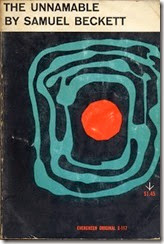 Now doesn’t that last quote remind you so of the end of The Unnamable which closes with the phrase “You must go on, I can't go on, I'll go on,” That said I find myself agreeing with Hirsch when he notes, “the staccato line breaks are flawed and the lineation is probably the weakest aspect of this otherwise well-written book.” What is interesting is how the character of the Centaur clings to prose for so much of the novel but only towards the end, when he finally gives into his grief, do his words turn to poetry:
Now doesn’t that last quote remind you so of the end of The Unnamable which closes with the phrase “You must go on, I can't go on, I'll go on,” That said I find myself agreeing with Hirsch when he notes, “the staccato line breaks are flawed and the lineation is probably the weakest aspect of this otherwise well-written book.” What is interesting is how the character of the Centaur clings to prose for so much of the novel but only towards the end, when he finally gives into his grief, do his words turn to poetry:
CENTAUR:
Imprisoned
in my room,
on my cursed body-desk,
I finally have written. Like fingers
probing crumbled earth,
I wrote the story.
The writing down is important. In writing down he comes to understand. And that is what Grossman’s been doing. His book was for himself first, and then us. I get that.
David Grossman lost his younger son, Uri, in the last Lebanese incursion by the IDF when an anti-tank missile hit its mark. George Packer’s essay in The New Yorker fills in the details and is worth a read. The statement issued by the family at the time read:
 Uri Grossman was born on August 27, 1985. He was supposed to celebrate his 21st birthday in two weeks. Uri studied at the experimental school in Jerusalem. He reached the armoured corps and fulfilled his aspiration to be a tank commander. He was about to be released (from the army) in November, travel the world, and then study theatre. Friday evening he spoke, from Lebanon, with his parents and sister. He was glad that a decision on a ceasefire was taken. Uri promised that he will be eating the next Shabbat dinner at home. Uri, son to David and Michal and brother to Yonatan and Ruthie, had a fabulous sense of humour and a big soul filled with life and emotion.
Uri Grossman was born on August 27, 1985. He was supposed to celebrate his 21st birthday in two weeks. Uri studied at the experimental school in Jerusalem. He reached the armoured corps and fulfilled his aspiration to be a tank commander. He was about to be released (from the army) in November, travel the world, and then study theatre. Friday evening he spoke, from Lebanon, with his parents and sister. He was glad that a decision on a ceasefire was taken. Uri promised that he will be eating the next Shabbat dinner at home. Uri, son to David and Michal and brother to Yonatan and Ruthie, had a fabulous sense of humour and a big soul filled with life and emotion.
That was in 2006 and so Falling Out of Time is very much Grossman’s considered response to his son’s death.
This is a profound book and even if the poetry is not always the most poetic the book as a whole is. It takes us there. And then reveals the hardest truth matter-of-factly: "Maybe there has always been here all this time?"
“And maybe we’ve been there, too, just a bit, since it happened to us?” [The Town Chronicler’s wife] straightens up and a new momentum seems to drive her steps. “Maybe there has always been here, and we just didn’t know it?”
Some have suggested this might work as a play, specifically a radio play—Kate Kellaway in The Observer and Edward Hirsch—and it might with a little careful adaptation.
***
 David Grossman was born in Jerusalem, where he still lives. He is the best-selling author of several works of fiction, nonfiction, and children’s literature, which have been translated into thirty-six languages. His work has also appeared in The New Yorker. He is the recipient of numerous awards, including the French Chevalier de l’Ordre des Arts et des Lettres, the Buxtehuder Bulle in Germany, Rome’s Premio per la Pace e L’Azione Umanitaria, the Premio Ischia International Award for Journalism, Israel’s Emet Prize, and the 2010 Frankfurt Peace Prize.
David Grossman was born in Jerusalem, where he still lives. He is the best-selling author of several works of fiction, nonfiction, and children’s literature, which have been translated into thirty-six languages. His work has also appeared in The New Yorker. He is the recipient of numerous awards, including the French Chevalier de l’Ordre des Arts et des Lettres, the Buxtehuder Bulle in Germany, Rome’s Premio per la Pace e L’Azione Umanitaria, the Premio Ischia International Award for Journalism, Israel’s Emet Prize, and the 2010 Frankfurt Peace Prize.
 This is my last weekly blog for 2014 so I’d just like to wish everyone reading it a Happy New Year when it comes and let’s hope 2015’s a little kinder to the world than 2014’s been. Next year I’m taking a year off. I’ve enough reviews and articles stockpiled (plus a couple I’ve committed to write at the start of the year) to enable me to post one a month for the whole of 2015 and then we’ll see. The rest of the time I’m going to upload my poems, a couple a week probably so you will be kept entertained. Of course I’m not actually taking a year off; it’ll be more of a busman’s holiday. I’ve other stuff I have to do that’s more important and I’ll reassess the situation in a year’s time depending on how successful this experiment is.
This is my last weekly blog for 2014 so I’d just like to wish everyone reading it a Happy New Year when it comes and let’s hope 2015’s a little kinder to the world than 2014’s been. Next year I’m taking a year off. I’ve enough reviews and articles stockpiled (plus a couple I’ve committed to write at the start of the year) to enable me to post one a month for the whole of 2015 and then we’ll see. The rest of the time I’m going to upload my poems, a couple a week probably so you will be kept entertained. Of course I’m not actually taking a year off; it’ll be more of a busman’s holiday. I’ve other stuff I have to do that’s more important and I’ll reassess the situation in a year’s time depending on how successful this experiment is. 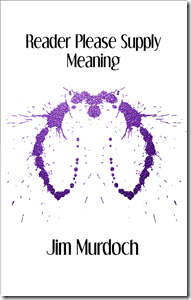 that’s done but I still need to keep on top of things. That’ll be out early 2015 and I’ll need to devote time to promoting it too. And then we’ll see if anything else happens. I have ideas—I have ideas all the time—but they get lost in the morass that passes for my mind and half the time even when I write them down I lose them.
that’s done but I still need to keep on top of things. That’ll be out early 2015 and I’ll need to devote time to promoting it too. And then we’ll see if anything else happens. I have ideas—I have ideas all the time—but they get lost in the morass that passes for my mind and half the time even when I write them down I lose them. 


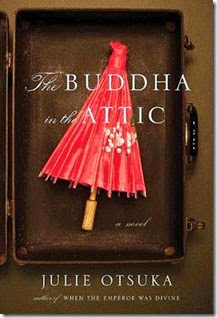
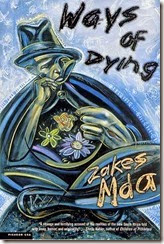
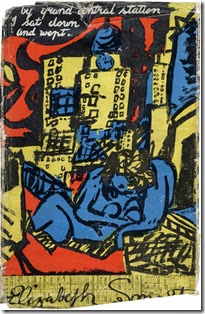
 Julie Otsuka
Julie Otsuka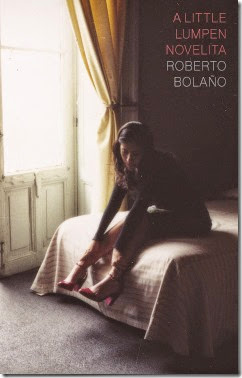
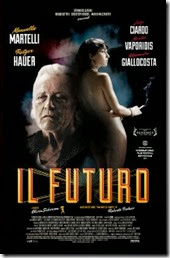
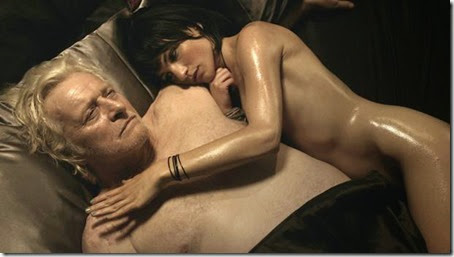
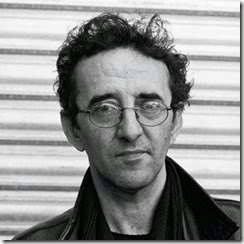







 David Grossman
David Grossman